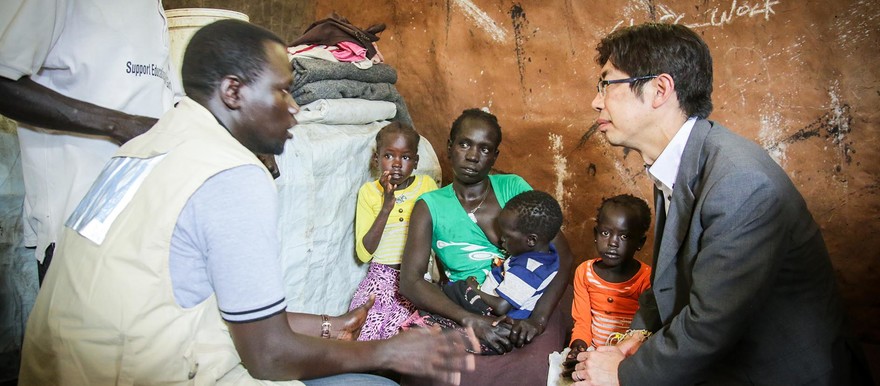Japan’s Ambassador to South Sudan Kiya Masahiko has pledged to continue supporting refugees in South Sudan including those in Maban County, which he visited last week together with the Country Representative of the UN Refugee Agency (UNHCR).
Kiya wrapped up a one-day visit to Upper Nile’s Maban County last Thursday. UNHCR said in a statement on Saturday that the purpose of his recent visit was “to show solidarity with the refugees” as well as assess the impact of Japan’s donations to help the refugees.
During his field trip, the Japanese envoy visited some of the projects funded by the Japanese government in Doro refugee camp, including classrooms at a primary school, a borehole, and refugees’ shelters built with Japanese support. He also visited the Maban County Hospital, which has been upgraded with new equipment over the last two years thanks in part to donations made by Japan.
As quoted by UNHCR in a press release on Sunday, the Japanese ambassador has pledged to continue supporting services for refugees.
“Resources are limited, but we are committed to continue our support for refugees and host communities in South Sudan,” said Ambassador Kiya. “It is important that the contribution of the people of Japan reaches the most needy refugees and makes substantive improvements in their livelihoods.”
He added, “My country wants to promote peaceful coexistence among communities and help South Sudan better cope with large numbers of refugees.”
Meanwhile, the UNHCR Country Representative Ahmed Warsame credited Japanese funding for improving living conditions for “tens of thousands of Sudanese refugees… living within and around Maban camps.”
Photo: Japanese Ambassador Kiya Masahiko meets with 28-year-old Susan in Doro refugee camp, Upper Nile State (UNHCR/R. Nuri)




